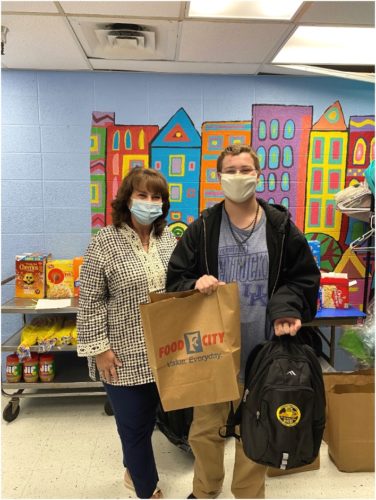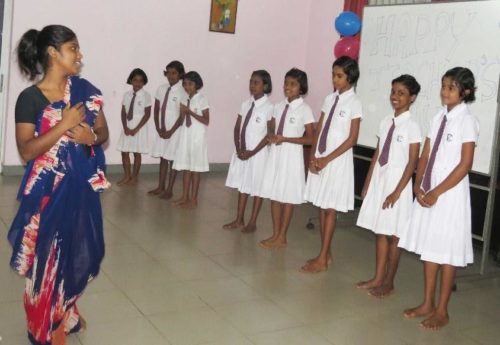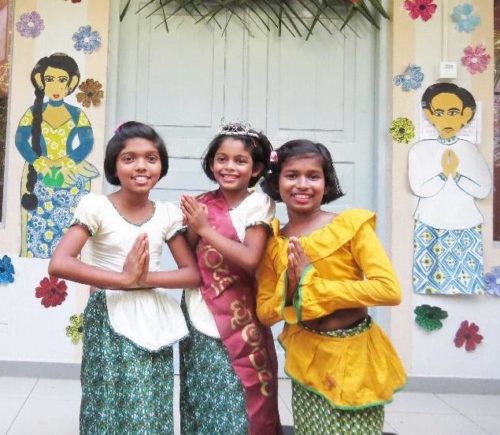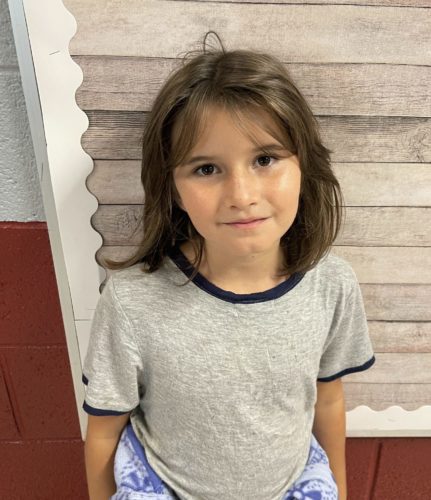Sometimes it seems that what we provide for our sponsored children around the world is so simple that it couldn’t possibly make a huge difference in their lives — but in reality, the simple things do often make a lasting change.
In reality, the simple things do often make a lasting change.
Our volunteer coordinator at the Armenian Evangelical Secondary School in Anjar, Lebanon wrote us a letter of appreciation after we recently provided vulnerable children in our program with school supplies that he insists are allowing them to continue to pursue their dreams of getting an education:
A note from Reverend Hagop
“We appreciate your generous donation that was used to purchase stationary, paper, books, pens, pencils, and rulers for the children who are in the Children Incorporated program.
The stationary items were purchased, and the students received them with great joy and appreciation. The children were in great need of them, since their parents were unable to afford buying them due to the economic depression and degeneration of the Lebanese currency against the foreign currencies. But now, due to your generous contribution, the children are able to follow their education with greater ease and joy.
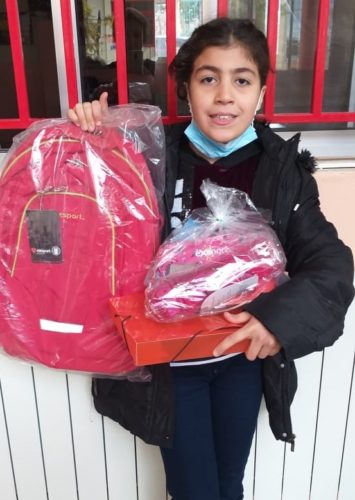
Thanks to their sponsors, children in Lebanon have brand new school supplies.
Our school administration along with the school parents and teachers appreciate the thoughtfulness and consideration of our sponsors and the great work achieved by the Children Incorporated program.
We hope and pray that your program continues its blessed work in aiding children in need around the world.”
About Lebanon
Renowned for its towering cedar trees, Lebanon boasts fertile valleys, snow-capped, ore-rich mountains, and – in a region where water is scarce – sixteen rivers that flow into the glistening Mediterranean Sea along Lebanon’s western coast. This small Middle Eastern country has an incredibly rich culture, evincing the influence of Greek, Roman, Arab, Ottoman Turk, and French culture. However, Lebanon’s wealth of diversity has also contributed to its turbulent history. Lebanon continues to suffer repercussions of a history riddled with wars – both civil and international. Poverty, unemployment, and the ever-present threat of war are tragic realities here.
About our affiliated site
Recognized as a World Heritage Site, Anjar is located near the Syrian border in the fertile Beqaa Valley, where much of the nation’s vegetables, grains, and wine grapes are produced. In the 1930’s, an influx of Armenians (a minority ethnic group in Lebanon) fleeing Turkey settled here.
“We hope and pray that your program continues its blessed work in aiding children in need around the world.”
To this day, Armenian agricultural laborers who earn very little comprise an extensive portion of Anjar’s population. For this reason, the Armenian Secondary School serves as a beacon of hope. Serving both boys and girls of this impoverished and marginalized population, the school contains an attached boarding home for students whose parents cannot afford to send them to school. In conjunction with Children Incorporated sponsorship, the Armenian Secondary School provides these deserving children with the opportunity, through a well-rounded education, to rise above the difficult socioeconomic circumstances that they face.
***
How do I sponsor a child in Lebanon?
You can sponsor a child in Lebanon in one of three ways: call our office at 1-800-538-5381 and speak with one of our staff members; email us at sponsorship@children-inc.org; or go online to our sponsorship portal, create an account, and search for a child in Lebanon that is available for sponsorship.

